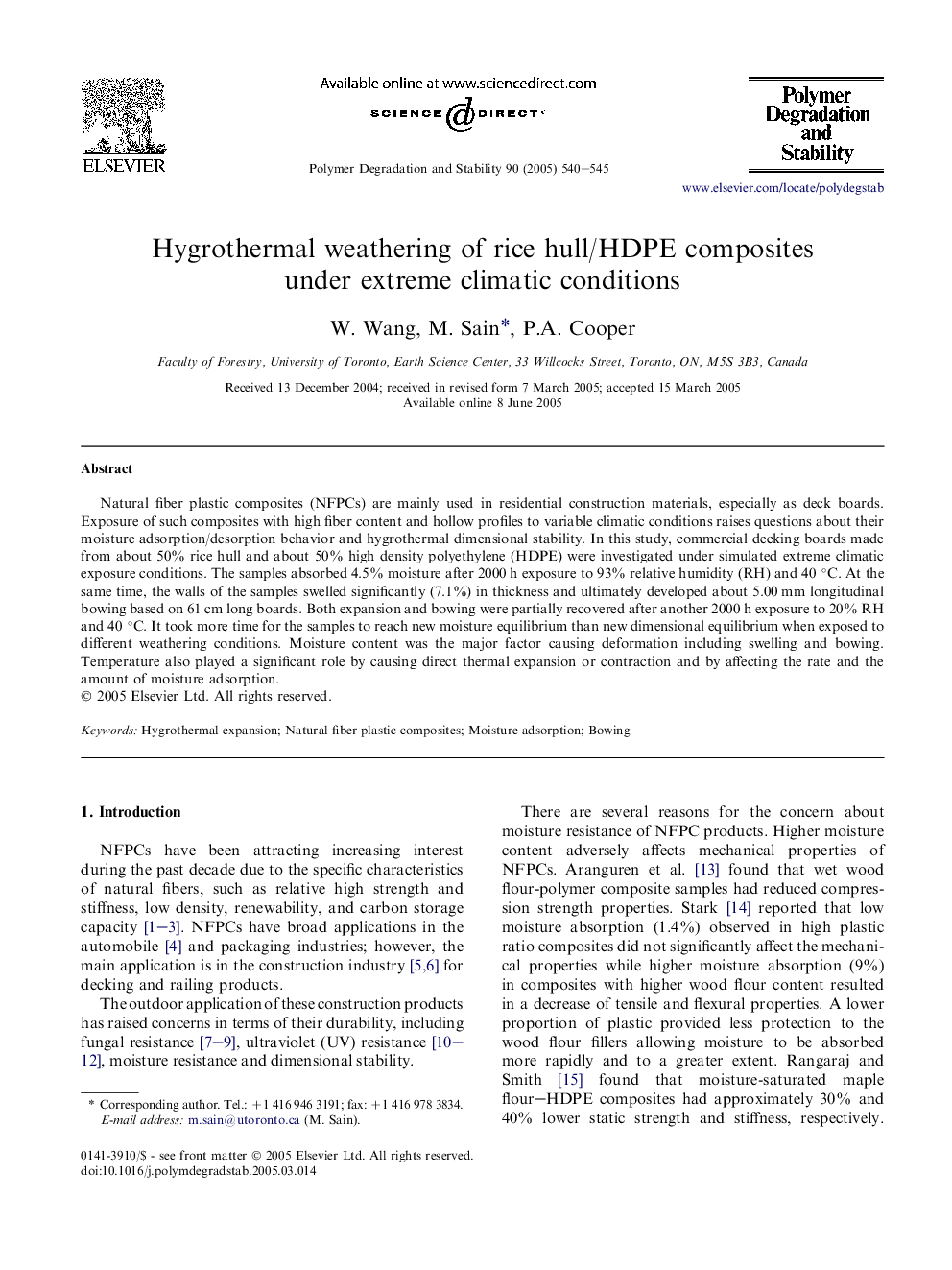| Article ID | Journal | Published Year | Pages | File Type |
|---|---|---|---|---|
| 9560627 | Polymer Degradation and Stability | 2005 | 6 Pages |
Abstract
Natural fiber plastic composites (NFPCs) are mainly used in residential construction materials, especially as deck boards. Exposure of such composites with high fiber content and hollow profiles to variable climatic conditions raises questions about their moisture adsorption/desorption behavior and hygrothermal dimensional stability. In this study, commercial decking boards made from about 50% rice hull and about 50% high density polyethylene (HDPE) were investigated under simulated extreme climatic exposure conditions. The samples absorbed 4.5% moisture after 2000 h exposure to 93% relative humidity (RH) and 40 °C. At the same time, the walls of the samples swelled significantly (7.1%) in thickness and ultimately developed about 5.00 mm longitudinal bowing based on 61 cm long boards. Both expansion and bowing were partially recovered after another 2000 h exposure to 20% RH and 40 °C. It took more time for the samples to reach new moisture equilibrium than new dimensional equilibrium when exposed to different weathering conditions. Moisture content was the major factor causing deformation including swelling and bowing. Temperature also played a significant role by causing direct thermal expansion or contraction and by affecting the rate and the amount of moisture adsorption.
Keywords
Related Topics
Physical Sciences and Engineering
Chemistry
Organic Chemistry
Authors
W. Wang, M. Sain, P.A. Cooper,
